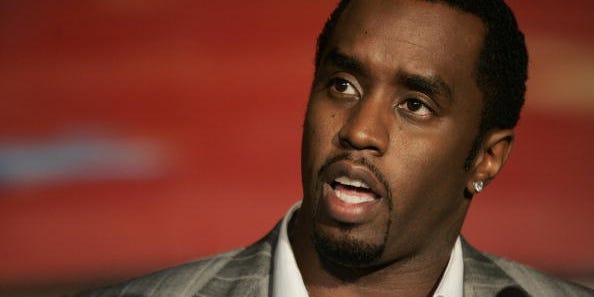- Combs had hoped a Manhattan judge would approve home-detention in a rented Manhattan brownstone.
- This bail request was Combs’ 3rd attempt to be freed pending his May 5 sex-trafficking trial.
- Three judges have now ruled Combs posed too high a risk of violence and obstructing justice.
A federal judge in Manhattan on Wednesday night denied the third and likely last bid by Sean “Diddy” Combs to be freed on home confinement pending his May 5 trial date on sex trafficking and racketeering charges.
“No condition or combination of conditions will reasonably assure the safety of the community,” including witnesses and prospective jurors, if Combs were released, wrote US District Judge Arun Subramanian.
“The indictment charges Combs with serious and violent crimes,” the judge wrote in an 11-page bail denial that quotes extensively from the allegations in denying bail.
“It alleges that “[f]or decades,” Combs ‘abused, threatened, and coerced women and others around him to fulfill his sexual desires, protect his reputation, and conceal his conduct,'” the judge quoted the indictment saying.
The judge also made reference to the notorious hotel hallway-sureveillance video showing Combs beating ex-girlfriend Cassie Ventura, saying it is “direct evidence of Combs’ violence.”
Also weighing against bail is evidence gathered by federal prosecutors “supporting a serious risk of witness tampering,” the judge wrote.
Combs deleted a series of texts he sent to a key grand jury witness in the days before and after the witness testified before a grand jury in July, the judge wrote.
This witness, identified only as “Witness 1,” is a male sex worker who had participated in “freak offs,” elaborate, days-long sex parties that Combs allegedly coerced his victims into joining, according to other court filings.
Even during his more than two months in jail, Combs continued to try to influence witnesses and prospective jurors, at times through unauthorized three-way calls or by paying other inmates to use their phone access, the judge wrote.
“His willingness to skirt BOP rules in a way that would make it more difficult for his communications to be monitored is strong evidence that the Court cannot be reasonably assured as to the sufficiency of any conditions of release,” the judge wrote, using the acronym for the federal Bureau of Prisons.
It’s especially troubling, the judge added, that Combs tried to skirt BOP regulations while he was seeking bail, “and when he knew the government’s concerns about witness tampering and obstruction were front and center.”
In September, two other judges — a magistrate judge, and Combs’ previous case judge — had rejected bail out of similar concerns over violence and potential witness tampering.
Combs had hoped his home for the next eight or so months — as he awaited and then submitted to a federal sex-trafficking trial — would be a four-bedroom, single-family Manhattan brownstone, said a source involved in the bail planning who asked for anonymity because they were not authorized to speak to the press.
The home would have had space for a defense command center and for several family members to live there too, the source said.
Combs was prepared to post a bail bond for $50 million, collateralized by his Miami mansion. The bond would have been co-signed by his mother, Janice, his sister, his three adult sons, along with two women a bail application described as “the mother of his oldest daughter” and “the mother of his youngest daughter.”
Combs would also have worn a GPS tracking ankle bracelet and could only leave the residence to go to court or see a doctor, his lawyers told the judge.
“Mr. Combs will not have access to a cell phone,” his lawyers wrote the judge in a last-ditch plea for bail on Tuesday. “Rather, the cell phone will be in the exclusive possession of the security detail, which will keep a written log of all incoming and outgoing calls, texts, messages, etc.”
Only his lawyers and specific family members — those approved by the court — would be allowed to visit, and these visits would be monitored by security personnel, Combs’ defense promised.
Preparing for a May 5 trial date was “impossible” from his current housing, the federal Metropolitan Detention Center in Brooklyn, his lawyers had also argued.
Prosecutors have accused Combs of breaking federal Bureau of Prison rules as recently as this week by trying to influence potential witnesses and jurors from jail, including through forbidden messaging apps and three-way calls.
Defense lawyers had countered that they could keep Combs just as secure on home confinement — or even more secure — than in the jail where he’s lived since his September 16 arrest.
The US Probation and Pretrial Services and federal prosecutors had opposed his release.
Combs has pleaded not guilty. His lawyers have said in court and in filings that the sexual behavior alleged in the indictment was consensual, and that his accusers have financial incentive to implicate him.
An attorney for Combs and a spokesperson for the US Attorney’s Office did not immediately respond to a request for comment on the bail denial.

